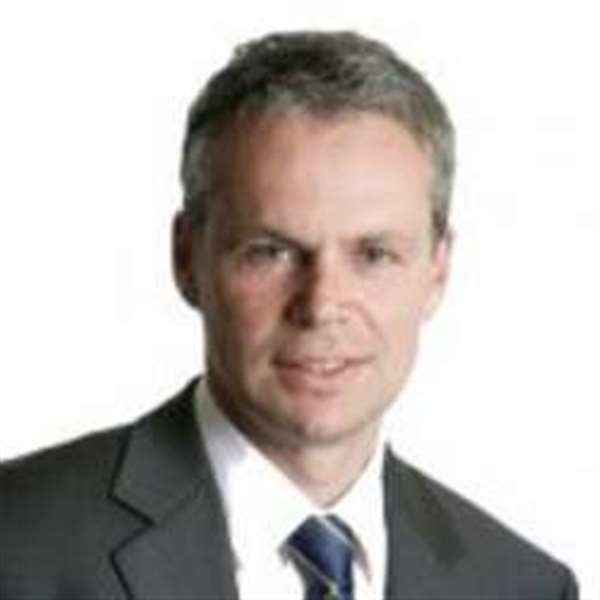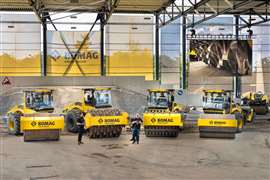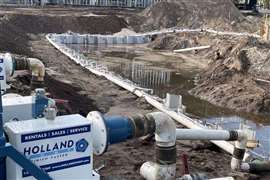How to find the right employees for a rental business
02 June 2021
International Rental News talks to Tracy Edwards, Recruitment Manager at Sunbelt Rentals UK, about the company’s policies for recruiting new staff. And we ask Sam Arnold, Head of Learning and Development, to describe Sunbelt’s successful apprenticeship scheme.
IRN: Would you say the rental industry is facing a skills shortage, or difficulties in recruiting the right people?
Tracy Edwards, Sunbelt Rentals UK: As in most sectors, the rental industry is experiencing resourcing challenges. There are a number of factors in this including Covid-19, an ageing workforce profile, national skills shortages and high demand for key job roles, for example HGV (heavy goods vehicle) drivers.
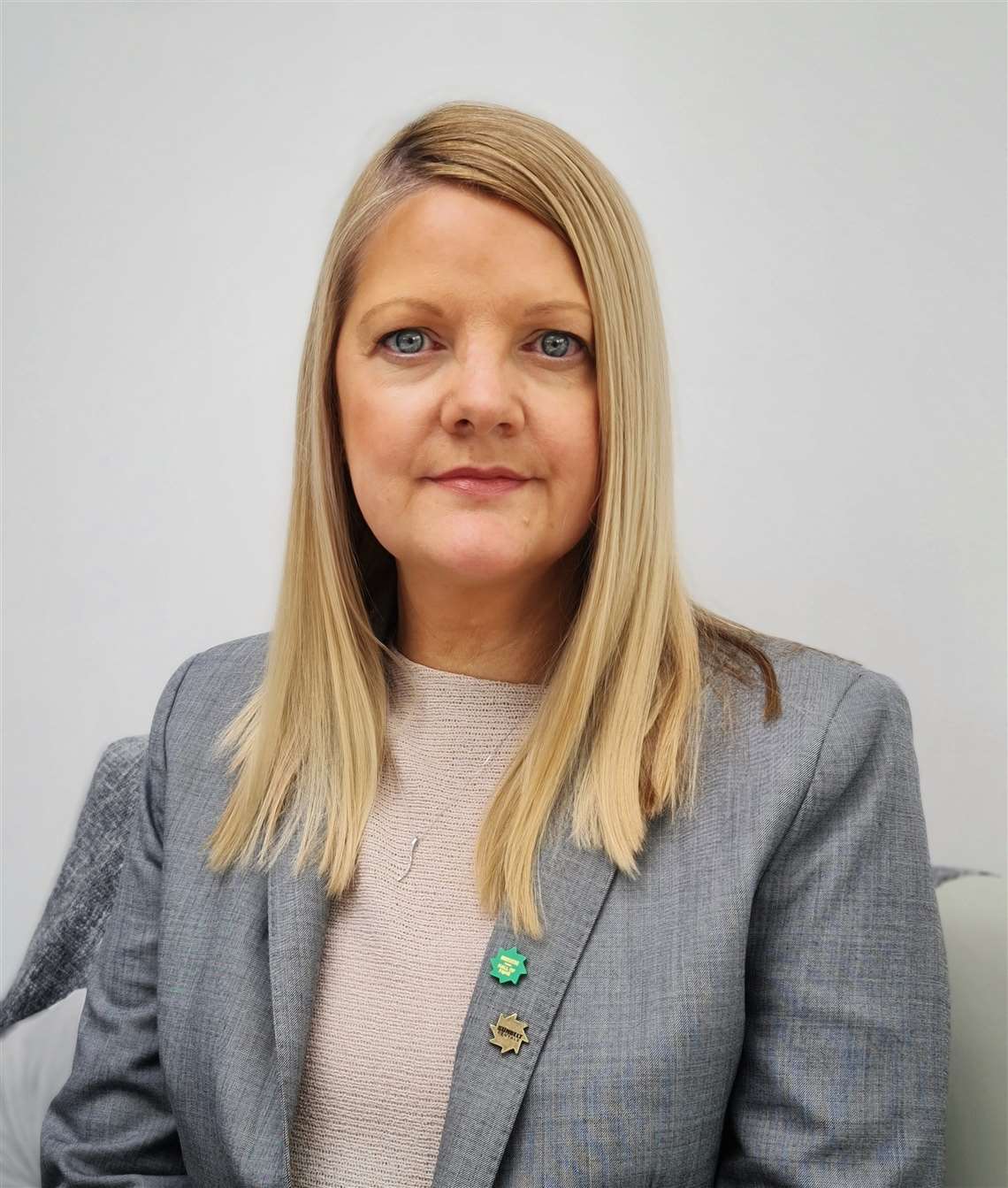 Tracy Edwards, Recruitment Manager at Sunbelt Rentals UK.
Tracy Edwards, Recruitment Manager at Sunbelt Rentals UK.
Whilst there has been a tradition of focusing on recruiting candidates with rental experience, at Sunbelt Rentals we are committed to encouraging a wide range of applicants with transferable skills to join the sector – those who feel that our Sunbelt Values really resonate with them and want to work for a company that truly cares about its people.
We are seeing new team-mates bring fresh ideas and experience to the sector and really thrive in role, which is fantastic to see and supports our aim of breaking down barriers and encouraging people from all backgrounds to apply.
Can you identify particular areas where there are more difficulties in finding the right people, for example, mechanics, workshop staff, sales, etc.
Tracy Edwards: Geographically, our key challenges are recruiting in the South/South East region. From a skills perspective HGV Drivers and experienced fitters/engineers, particularly those with specialist skills such as powered access or power generation, are also often more difficult to attract.
More widely, roles such as Software Developers are in high demand nationally at present and it is proving challenging to find good candidates with the right IT technical experience.
Our early careers schemes and entry-level programmes aim to support the future talent pipeline, alongside our commitment to providing all team-mates with personal and professional development and career pathways across our key job functions and specialisms.
Has the pandemic made it more difficult to recruit? What has been the impact, and how have you got around that problem?
Tracy Edwards: It has certainly presented us with some process challenges in recruiting and inducting new team-mates during the pandemic, such as video interviewing and remote inductions.
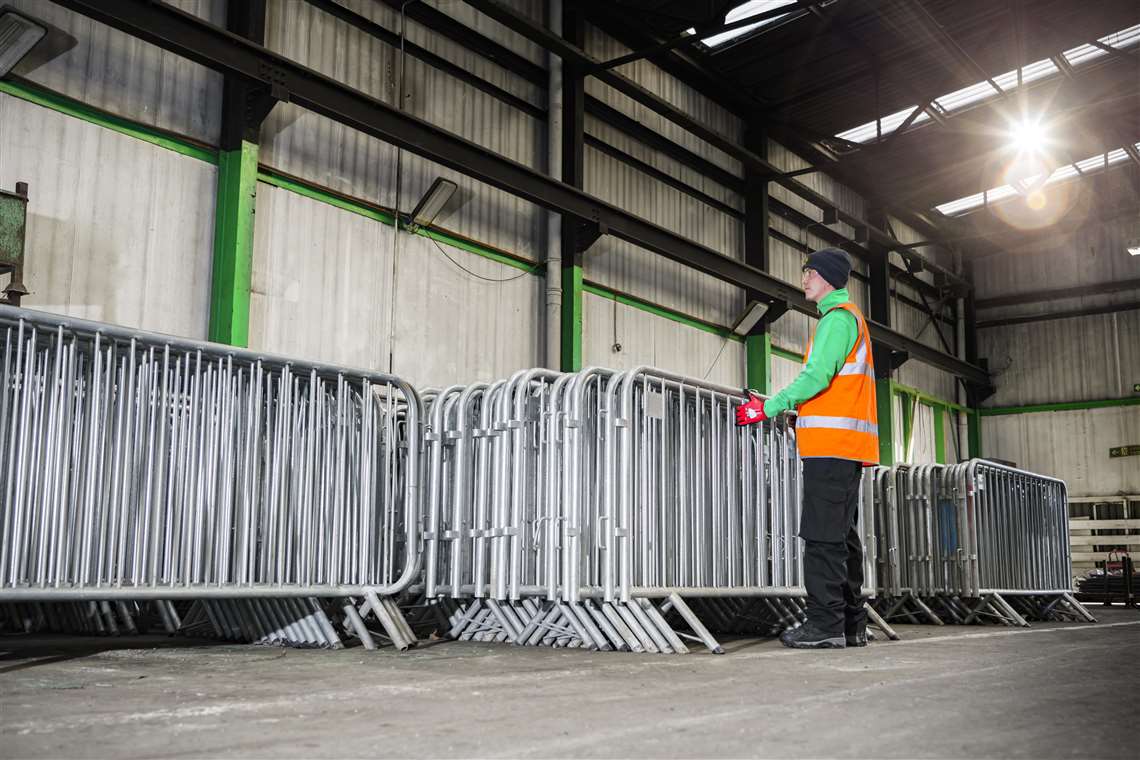 A Sunbelt Rentals employee working in the company’s non mechanical division.
A Sunbelt Rentals employee working in the company’s non mechanical division.
We re-branded to Sunbelt Rentals in June 2020 in the midst of the pandemic and this, in conjunction with the fantastic work our team-mates have delivered in supporting the NHS Covid-19 test sites and our status as an essential provider, has really proven positive in our employer brand messaging and attracting quality candidates.
Similar to most employers we have however seen uncertainty in the candidate market overall, with many people prioritising job tenure and stability and choosing to stay with their existing employer for the time being. We expect this to ease over the coming months as the UK recovers from the effects of the pandemic.
Equipment rental and plant hire may not be viewed as a ‘modern’ or ‘hi-tech’ career option: how do you promote the benefits and career potential of rental?
Tracy Edwards: Our Vision and Mission go a long way in supporting the message that someone joining Sunbelt Rentals has the real opportunity to help shape the future of rental through innovation and change.
We promote and share these messages with prospective candidates. For example, in our driver roles we can talk to candidates about our investment of more than £10 million on vehicles and £1.5 million on a new logistics system, ensuring our network of over 1000 transport colleagues always remain connected and our customers receive a world-class service.
In 2020 we launched a new pay and benefits package for team-mates including a range of benefits such as enhanced maternity and paternity schemes. It’s important that we continue to evolve and enhance our offering to support our aim in attracting and retaining the best talent and to be seen as the employer of choice in rental.
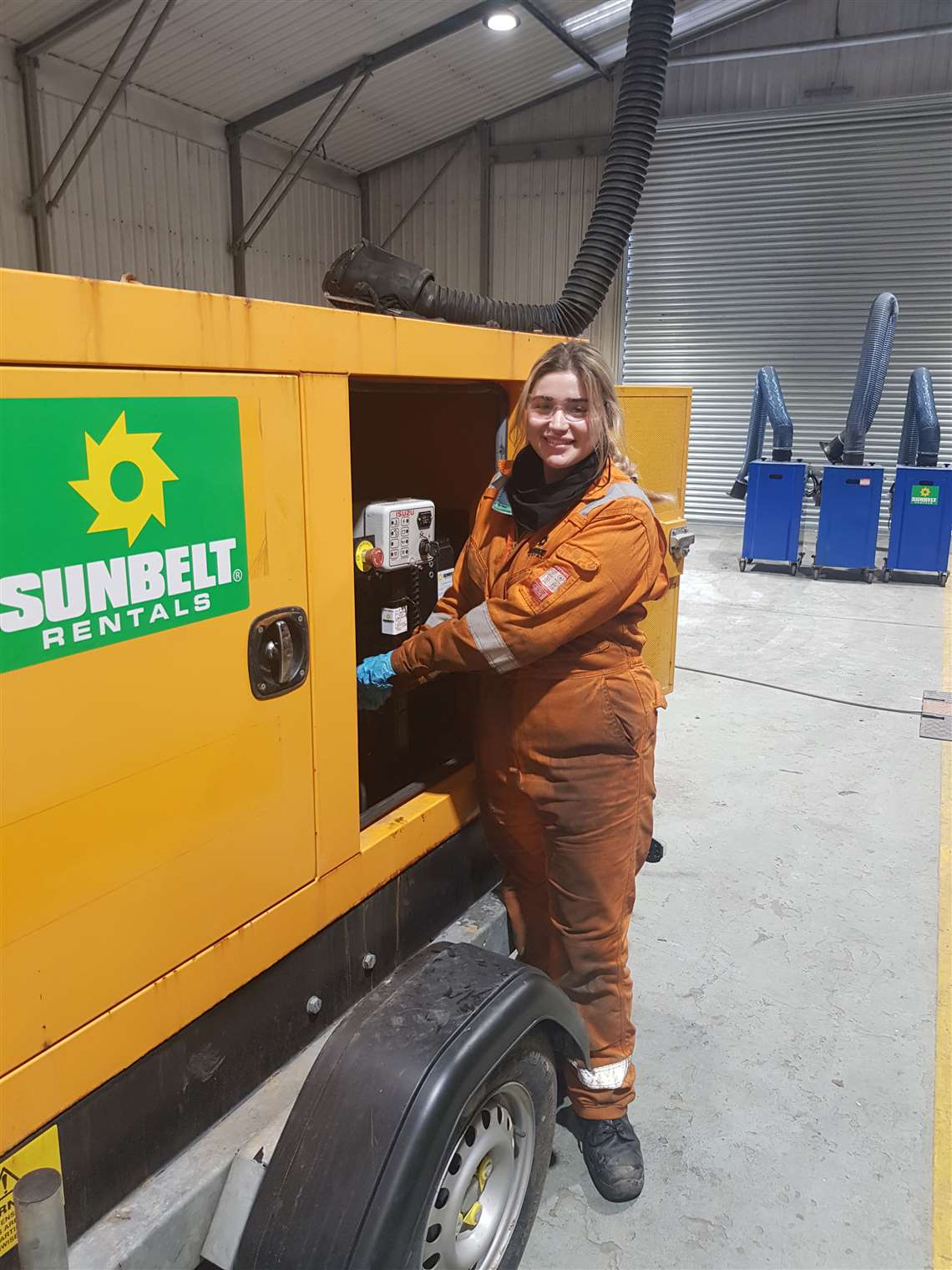
In your experience, what are the most effective routes to recruitment? Is it employment fairs, open days, social media campaigns, links to schools and colleges?
Tracy Edwards: All channels have value and we adopt a blended approach, defining the requirement and taking account of the resourcing challenges and target audience.
Over the past 12 months any face-face events such as careers fairs and open days haven’t been possible, apart from virtual/video events, so we are looking forward to getting to meet prospective candidates again, hopefully in the not too distant future.
Currently our most successful channels are LinkedIn (particularly for networking and attracting passive candidates) and Indeed (active job-seekers).
Rental plays into the sharing economy and sustainability. Do you use these concepts in your recruitment efforts? Do they have any traction?
Tracy Edwards: Corporate Social Responsibility and Sustainability are really important considerations when candidates are deciding whether an organisation is the right fit for their next career move.
Often, when candidates are asked at interview “what do they know about Sunbelt Rentals?” they will talk about our commitment to sustainability and are clearly actively seeking this information on the corporate website.
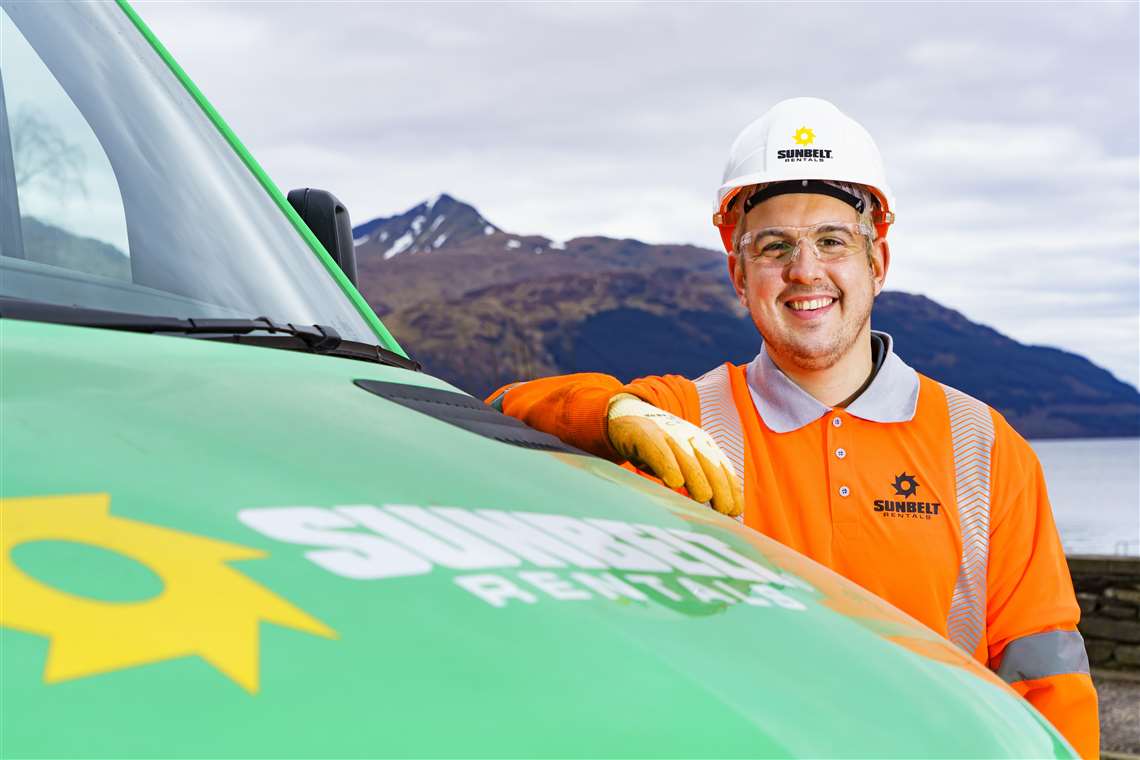 A Sunbelt Rentals employee in Scotland.
A Sunbelt Rentals employee in Scotland.
By demonstrating our commitment and focus through the Sunbelt Rentals Sustainability 2030 strategy – Environment, Community Engagement and Inclusivity, Local People and Skills and our corporate Governance - we do believe this has real traction for our employer brand and encouraging applicants to see Sunbelt Rentals as an employer of choice.
Are you happy with staff turnover rates at Sunbelt, and how have these evolved over the years? Do you have to work harder now to stand still?
Tracy Edwards: The rental sector has always seen quite high levels of staff turnover, due to a skills shortage and also competitive elements across the sector. In 2018, as the old A-Plant business and its subsidiaries, we had ahigh level of staff turnover, and that is one reason we launched our annual colleague survey “Your Voice” which is now in its third year.
As a result of feedback from our colleagues we rebranded the business, improved induction and training programmes, invested in improved benefits such as maternity pay and employee recognition programmes.
In the recent difficult times of coronavirus we have supported all our colleagues with full pay when on furlough, and have not made any redundancies as a result. In fact we are now a key business serving the NHS and government via the set-up of NHS testing sites across the UK.
As a result we have seen staff turnover reduce to its lowest ever level, and in many areas it has been in single digit percentages.
However we won’t stand still and will continue to review our colleague offerings, our training and development programmes and our culture to continue to retain the best talent in the sector with a clear aim of becoming the employer of choice within the rental sector.
Anything else you would like to highlight?
Tracy Edwards: If you are interested in finding out more about the wide range of careers at Sunbelt Rentals UK then please visit our careers site and register your interest to join our talent pool!
In our second Q&A, we asked Sam Arnold, Head of Learning and Development at Sunbelt Rentals UK, about the company’s apprenticeship programme.
IRN: When did the apprenticeship scheme start, and how has it grown?
Sam Arnold, Sunbelt Rentals UK: The scheme started in the 1990s but it was really in the mid 2000s when it began to grow. Initially the scheme was running plant maintenance apprentices only, with customer service and drivers being introduced around 2008-2009.
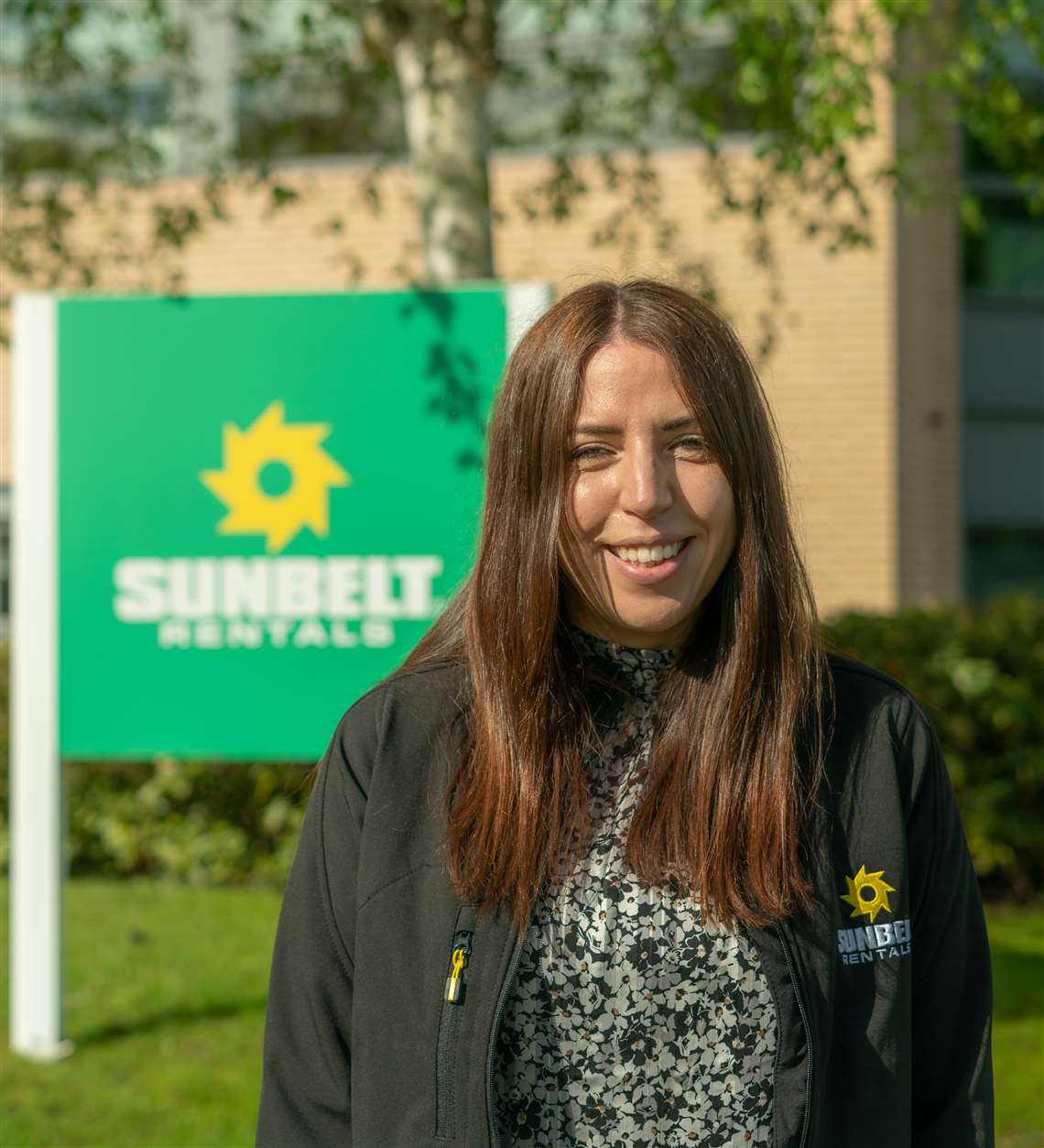 Sam Arnold, Head of Learning and Development at Sunbelt Rentals UK
Sam Arnold, Head of Learning and Development at Sunbelt Rentals UK
At this point we were using several colleges for the provision of the plant maintenance apprenticeship, but around 2010 we entered a sole supplier agreement with Reaseheath College. The customer service and driving apprenticeships were sourced from other suppliers.
The scheme has grown significantly over the years with further additions such as electro technical and mechanical engineering
Typically, how many apprentices do you have in the programme at any one time?
Sam Arnold: In normal times we would have approximately 150 apprentices. Covid meant that we did not recruit as we normally would in the Summer so we have approximately 70 apprentices currently. We are aiming to recruit an additional +70 apprentices during our summer recruitment campaign.
Do apprentices enter the scheme with a particular career path in mind, or do they specialise later in the process
Sam Arnold: We offer a range of apprenticeships from business apprenticeships to technical and engineering apprenticeships. Apprentices will start with a particular career path in mind. However, we are open to them changing their minds once they have experienced the role. For example, in the past, we have had apprentices that start as hire controllers but decide that the workshop is a better fit for them.
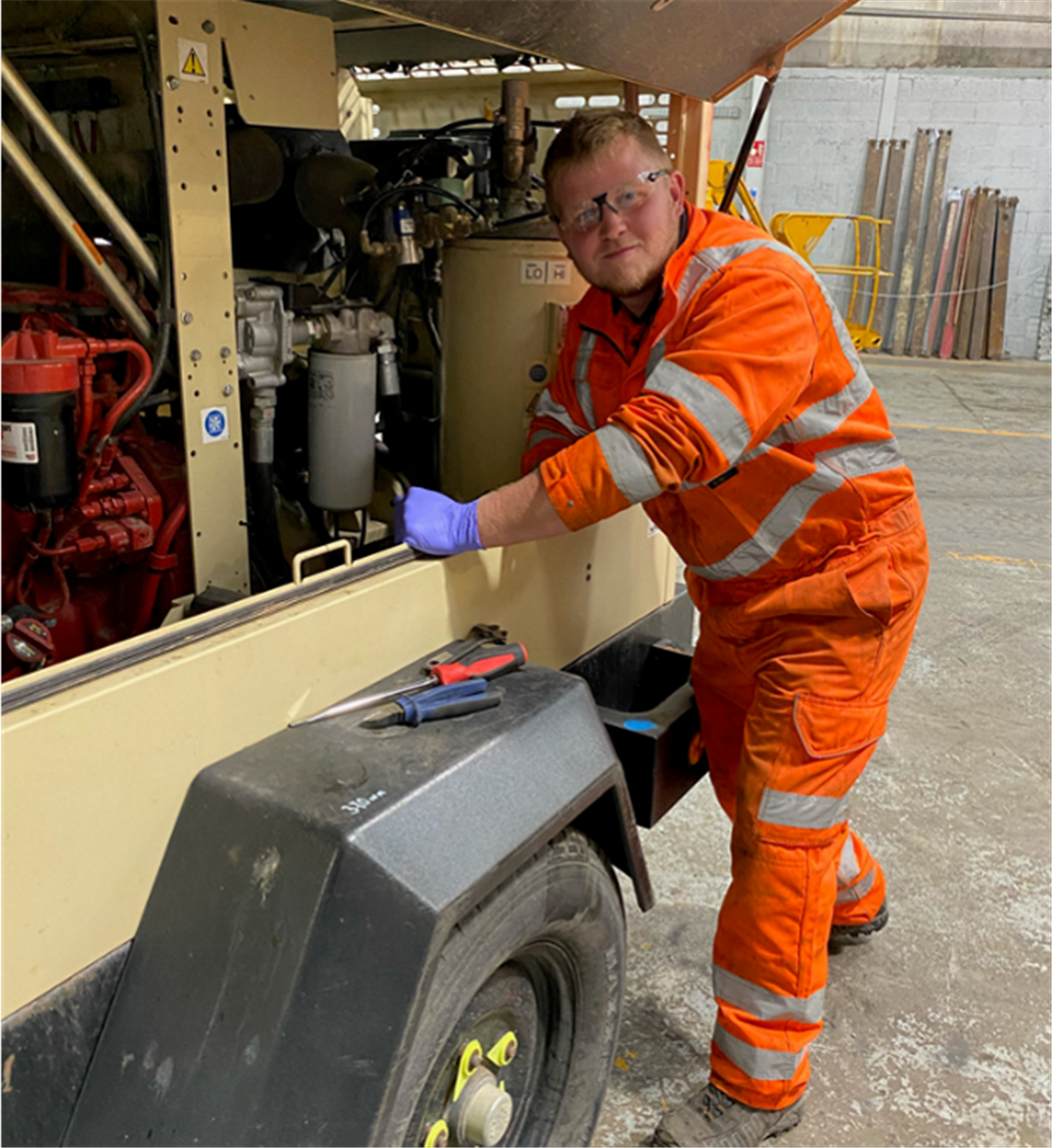 Joshua Foord, one of Sunbelt Rentals’ apprentices.
Joshua Foord, one of Sunbelt Rentals’ apprentices.
Are you able to use government programmes or funding to help with the programme?
Sam Arnold: We utilise the Government Apprenticeship Levy and Incentive scheme.
How do you measure the success of the programme, and on these terms, how successful has it been?
Sam Arnold: Our apprenticeship scheme is there to help us bridge future skill gaps within our organisation. We measure success based on how effectively we are able to do this. We’ve had plenty of success in this area with apprentices going on to forge good careers with us and within the industry as a whole. It is something we are proud of.
Is there any limit to where apprenticeships can end up in the business? Is further training or education offered to apprentices who show potential to take on senior roles?
Sam Arnold: There is absolutely no limit. A number of our senior leadership team including our CEO, Andy Wright, started as apprentices. We believe in giving people the support, development and opportunity to go as far as they can within Sunbelt Rentals. We have management and leaderships in place to help our apprentices achieve this.
What is the secret to running a successful apprenticeship programme? What needs to be in place in terms of resources? Is it something that SME companies could equally do?
Sam Arnold: It is important to commit fully to the apprenticeship scheme and this means investing in resource. Apprentices require a lot of investment initially but once qualified will be a huge asset to the business. Patience and support is key. Taking the time to nurture talent will lead to success.
What have you learned about the programme through the years? What have you changed since it was launched
Sam Arnold: We have learnt a great deal as the programme has expanded. We quickly realised that as our business diversified, the programme would need to adapt as well. We have also learnt to take a proactive approach when recruiting apprentice.
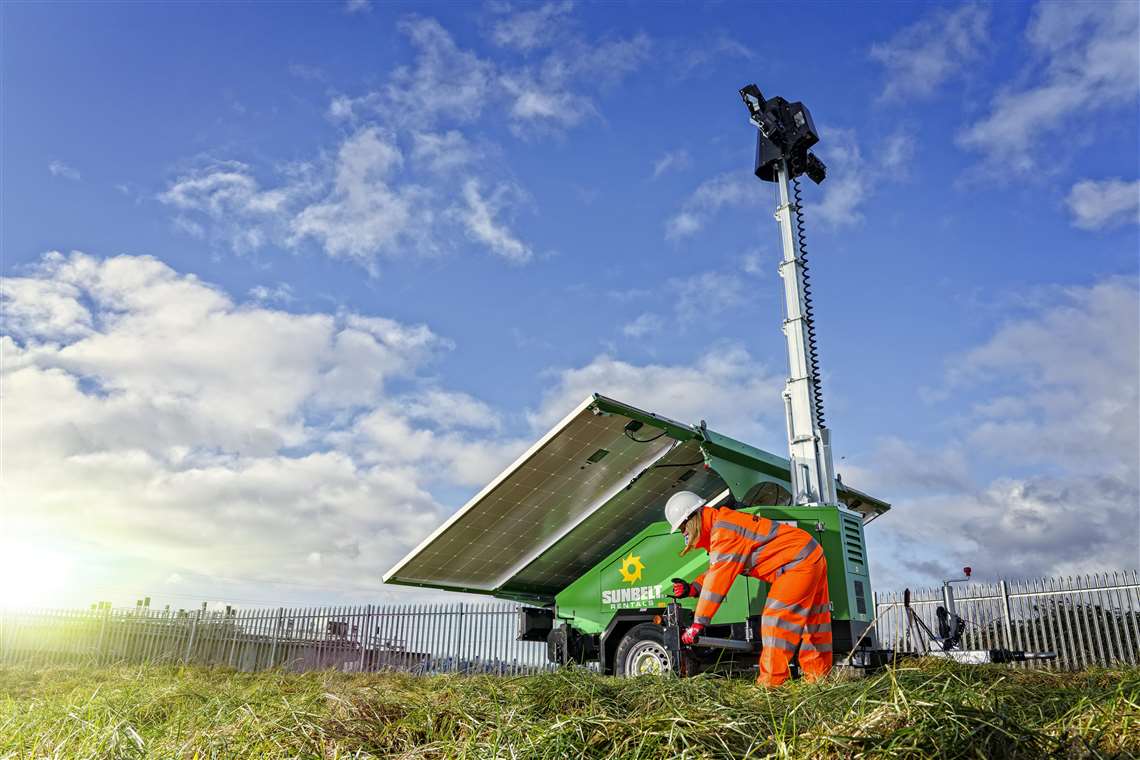 Sunbelt’s sustainability policies help attract new recruits, says the company.
Sunbelt’s sustainability policies help attract new recruits, says the company.
Educating schools and colleges of the benefits of an apprenticeship in the construction industry is vital when finding the right people for our business.
Is there anything else about the programme you would like to highlight?
Sam Arnold: We recently expanded the learning and development (L&D) team to include an L&D Specialist. This role will be focusing on the key early careers interventions for our business. This includes; apprenticeships, work placements, traineeships and a graduate programme.
We are excited to expand our horizons and continue to attract new and exciting talent into our business.
STAY CONNECTED



Receive the information you need when you need it through our world-leading magazines, newsletters and daily briefings.
CONNECT WITH THE TEAM
